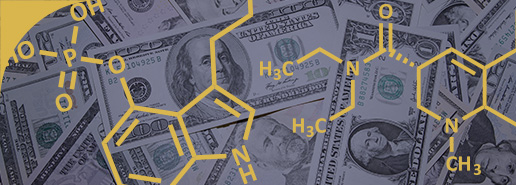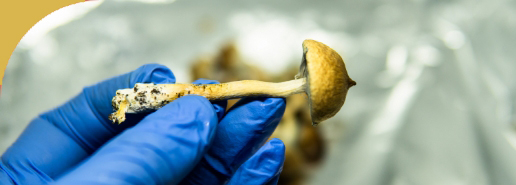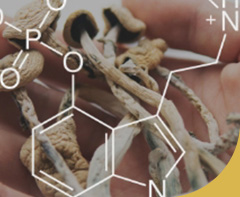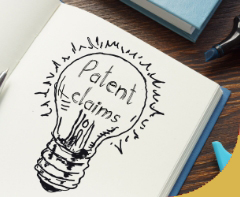
Once criminalized, psychedelic therapies are now a booming industry. But how do scientists adopt and patent medical practices that have been around for millennia? We speak with a panel of guests on decolonizing psychedelics and how patenting drugs impacts the industry, culture and treatment.
Listen to WPR Cast

Global sales of antidepressant drugs are expected to exceed $20 billion by 2030. Now, some investors are betting that psychedelic therapies can grab a share of that enormous market.
Watch cNBC Special

Cash rich start-ups are filing scores of patent claims on hallucinogens like magic mushrooms. Researchers and patient advocates worry high prices will make the therapies unaffordable.
Read NYT Article

The Patent Trial and Appeal Board decided that petitions against Compass Pathways' psilocybin patents would not move forward to trial.
Read VICE Article

Porta Sophia is building an online database and searchable library of historical, scientific and cultural information pertaining to psychedelics that they say will support the work of both innovators and patent examiners.
Read The Lucid News Article

Corporations are going to use IP law to profit from psychedelics. But creative strategies from other industries could help people push back against exclusionary ownership and keep drugs accessible.
Read The VICE Article

In the fall of 2020, longtime patent attorney David Casimir started a non-profit organization called Porta Sophia along with co-founder Bill Linton to fight what they consider to be “bad” patents on psychedelics...
Read The Microdose Interview

Compass Pathways has been aggressively using patent claims to corner the market on psychedelic-assisted treatments.
Read American Prospect Article

Shrooms could soon be legal in more places, and billions of dollars are in play. VICE News reports on whether psilocybin is doomed to become a therapy by and for the elite.
View Vice News Tonight / S6 EP1

A library of psychedelic knowledge, from clinical studies to turn of the century catalogs, may make psychedelic patents more fair.
Read Freethink* Article

The non-profit Freedom to Operate used research from chemists and crystallographers to argue in a legal filing that Compass’ form of synthetic psilocybin is not a new invention.
Read Tech By VICE Article

In August, Fitchburg-based Usona Institute started construction on a campus that it hopes will become a global center for research on psilocybin and other consciousness-expanding medicines.
Read Wisconsin Health News Article

There was a time when LSD and other vision-inducing psychedelic drugs were associated with the American counter-culture and for conservative observers with license and dissent …
Read Points History Article

Psychedelics have shown great promise in treating mental-health conditions, but their use is severely limited by legal obstacles, which could be overcome.
Read Nature Medicine Article

There has been a surge in patents of psychedelic therapies. Some recent headlines have suggested that patent claims on psychedelics represent a sign that “capitalism has gone rogue.” Others suggest that investors are debating ownership of a psychedelic future.
Read Psychology Today Article

Companies can own potentially valuable psychedelic IP without anyone even knowing if it works.
Read VICE Article

A recent application from CB Therapeutics on biosynthetic psilocybin is emblematic of the IP concerns around novelty and obviousness the psychedelic field will face.
Read VICE Article

Not everyone embraces the old psychedelic values of sharing and generosity. Today, as laws are changing, companies are filing a range of questionable patents that could let them control psychedelic molecules …
Read Psychedelic Times Article

News that COMPASS Pathways is attempting to patent psychedelic therapy room specifications and therapist behaviors started an online firestorm about the company’s “monopolistic and shady behaviors,” …
Read Psymposia Article